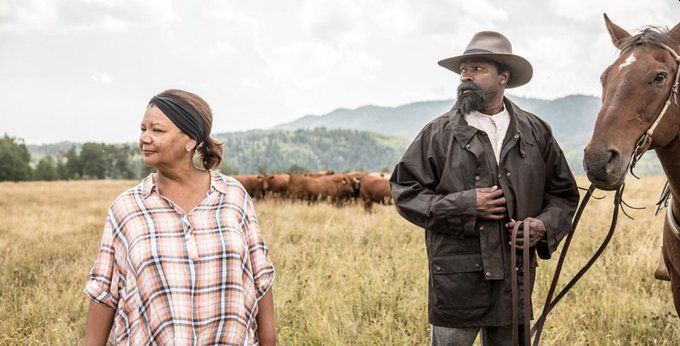 The Magnitude of All Things, director Jennifer Abbott’s devastating NFB co-production about personal and planetary grief, premièred at VIFF’s Vancity Theatre, with Abbott and co-producers Shirley Vercruysse and Andrew Williamson in attendance. #VIFF2020.
The Magnitude of All Things, director Jennifer Abbott’s devastating NFB co-production about personal and planetary grief, premièred at VIFF’s Vancity Theatre, with Abbott and co-producers Shirley Vercruysse and Andrew Williamson in attendance. #VIFF2020.
The Magnitude of All Things (Canada). Truth telling, a call to action, and gorgeously filmed by cinematographer Vince Arvidson, Sundance and Genie award-winning director Jennifer Abbott (The Corporation) offers viewers an intimate and emotional punch-in-the-gut with her new documentary.
The Magnitude of All Things draws intimate parallels between the experiences of grief — personal for the filmmaker in coming to terms with the passing of her sister, and planetary, as Magnitude takes us across the globe to witness planet Earth in crisis: from the catastrophic fires Australia suffered at the end of 2019, to the devastating role our current climate emergency has played in destroying a southern hemisphere eco-system, the bleaching of the Great Barrier Reef, the rising sea levels drowning the Pacific Island nation of Kiribati, to the destruction of the Amazon rain forest arising from the grievous policies of Brazilian and Ecuadorian presidents Jair Bolsonaro and Lénín Moreno, the struggles of the Indigenous peoples who are waging a desperate battle against oil and mining extraction and, at home, how the melting ice in the autonomous Newfoundland and Labrador Inuit community of Nunatsiavut has permanently altered the landscape.
Lest you believe The Magnitude of All Things to be a polemic, didactic filmmaking regurgitating what you’ve heard before, allow this writer to assure you that is not at all the case. Rather, Magnitude is a film about battles waged, lamentations of loss, and raw testimony that coalesces into an extraordinary tapestry, woven together with raw emotion and staggering beauty, a film that transform darkness into light, and grief into action.
The Magnitude of All Things. A film by Jennifer Abbott. An NFB & partners production.
![]()
![]()
![]()
![]()
![]()
![]()
![]()
![]()
![]()


John Ware Reclaimed (Canada). A genealogical exploration of the life of 19th century Alberta cowboy, John Ware, that seeks to reclaim the narrative of his life, filmmaker and historian Cheryl Foggo expands on the work she undertook in mounting her 2012 award winning play, John Ware Re-imagined, as she re-examines the history of Alberta’s famous early black folk hero and Prairie cowboy, who was rugged, independent & black.
From a story written by Omayra Issa for CBC Saskatchewan …
“It is a history that has been erased,” says Foggo. Both sets of her maternal grandparents came to Saskatchewan from the U.S. at the turn of the 20th century. Three generations lived in the province before moving to Alberta, the family eventually spanning across the 3 Prairie provinces.
Foggo’s ancestors were among the 1,500 to 2,000 African American farmers who came from the southern U.S. from 1905 to 1911 in search of a better life and a place that was less hostile and dangerous than Jim Crow America. They established five small pioneering communities: one in Saskatchewan and four in Alberta. Their story is steeped in slavery, racial segregation, and the fierce desire for emancipation.
Foggo has been reclaiming her family history for decades. More recently, she has been doing the same for an iconic Black figure on the Prairies, John Ware.
Ware proved himself to be a charismatic man and a highly skilled rancher. He owned two ranches, ultimately reaching one thousand head of cattle. He also pioneered irrigation in the region. Legends of his talents as a horseman were known in Indigenous communities on Treaty 7 territory, where he was close friends with chief Crowfoot of the Siksika First Nation.
John Ware’s story is a fundamental Prairie story and an indelible thread in the Canadian narrative. “It is important to connect John Ware to the Black history that was here in his time, carried on, and has been here from that time forward,” Foggo told CBC Saskatchewan journalist, Omayra Issa.